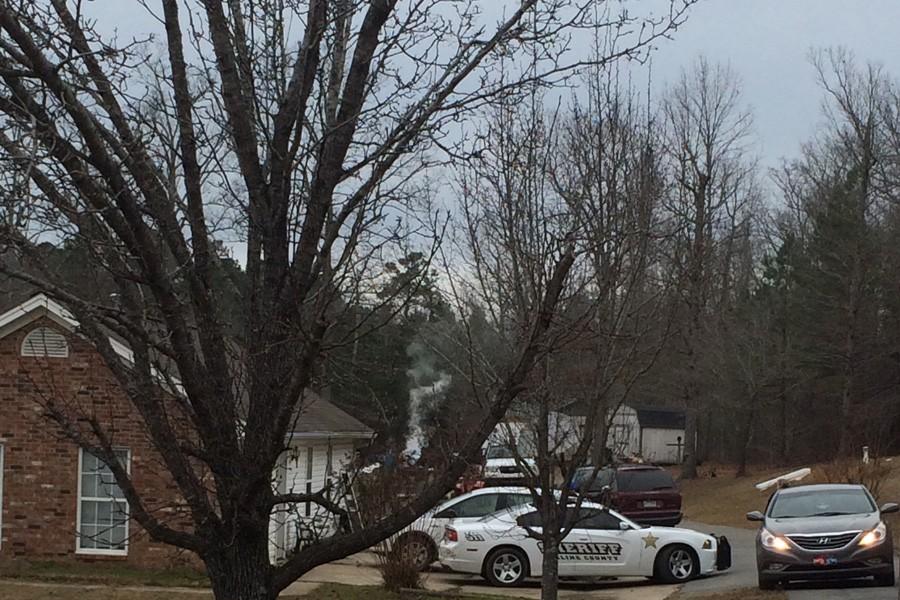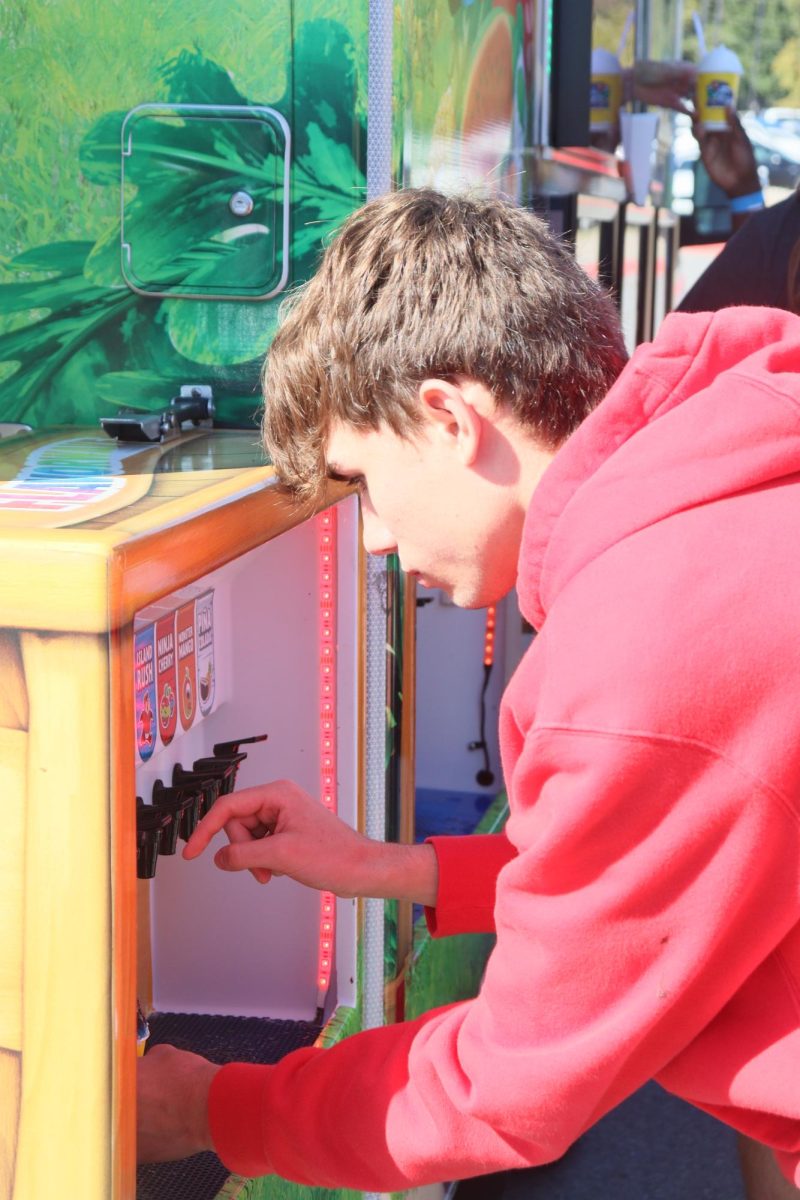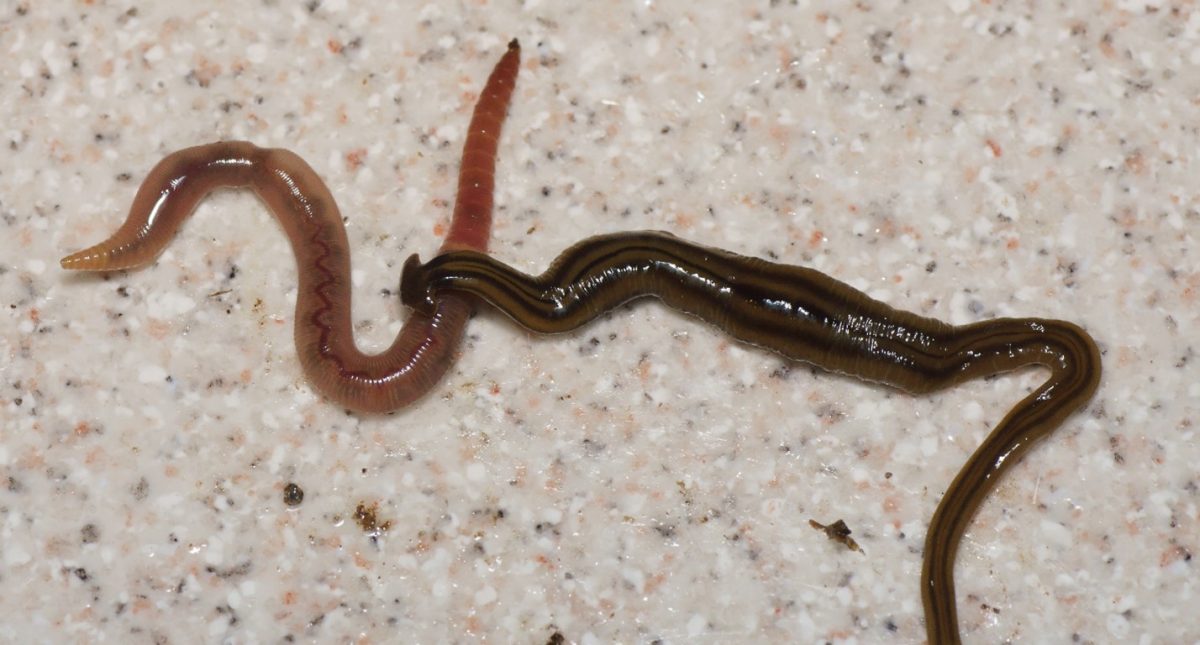Arkansas Burn Regulations
January 20, 2016
It is not strange, especially for students who live in rural areas, to see black plumes of smoke coming off burning trash piles. For the students parents who own land, it is not strange for the families of the students to believe that since it is their land legally, they can do what they wish on it, including burning their trash.
Most people do not burn their trash with the desire to add to the harmful air pollution that surrounds them on a daily basis. They simply are looking for an easy and cheap manner in which they can dispose of waste.
Jan. 16, the Goins family was trying to dispose of some plywood and old carpet on their land in Bauxite. What they were not aware of was that by burning these items, they were breaking the law. As the black smoke began to rise in the air, two police officers arrived, and after talking to the homeowners, contacted the fire department.
“They told us that somebody thought it was a house fire,” homeowner Kathryn Goins said.
From there, Goins watched as a fire truck extinguished the fire, and listened as Daniel Hicks, the fire chief of the Sardis Fire Department, explained that they had broken the law.
“I’ve been the Fire Chief for eight years,” Hicks said. “During my time as the chief, we have gotten a lot of calls about people burning their trash and burning things they aren’t supposed to.”
Based on the Arkansas State Air Pollution Control Regulations, it is against the law to burn objects filed under waste materials, which is inclusive of all man-made objects.
“Usually you can tell when you’re not supposed to be burning something by the smoke color,” Hicks said. “If the smoke is black or a dark brown, then you’re most likely not supposed to burn it, but if the smoke is white then you can legally burn it.”
The law was put into place to reduce the air pollution caused by those living in the state. It has been proven that burning some trash, like plastic or metal containers, is harmful to the environment.
“Basically the law states that you aren’t supposed to burn anything that is not vegetative or naturally grown,” Hicks said.
Residents who live in an area where garbage trucks are rarely seen are legally supposed to take their trash to the dump, which has a fee. If a person is charged with breaking the no burn law and tries to fight the ticket and loses, then they could face fines up to $5,000 a day.
“You can contact the Saline County Landfill and they can give you information about where you can get coupons so that you won’t have to pay as much to dispose of your trash, Hicks said. “I believe they give them out twice a year.”
If people do not have the ability to take trash to the dump themselves, or if they can not pay the fee to dump it themselves, there are a reported 24 “Trash Haulers” in Saline County who will haul the trash to the dump, usually for a lower price.
After receiving a warning ticket for illegal burning from the Saline County Sheriff’s Department, the Goins have learned their lesson.
“I feel like I had a positive experience with the fire department and the Fire Chief,” Goins said. “They were helpful and they did a good job explaining the law to me. I told them they won’t ever have to worry about us again.”
Disclaimer: Author is a relative of quoted source Kathryn Goins.








Cynthia S Parke | Jul 4, 2018 at 9:30 am
Sure wish there were more recycle bins all over the state . Most of the trash along our roadways is recyclable material. Most trash people are still burning, is recyclable. Our education system, has been preaching recycle recycle recycle for at least 40 years now, yet we do not provide enough opportunity for people to actually participate in the process…and support businesses that actually recycle materials, and re-use the material, or sell them to companies that do. Such a simple process for people to participate in. It is time the communities set out more bins…MANY more bins.
Diamond Smith | Jan 29, 2016 at 9:16 am
It’s very important to reduce the air pollution in the environment and people should not burn trash because it’s adding extra harmful chemicals into the air.
Shalana Williams | Jan 29, 2016 at 9:11 am
I feel like its a great thing to learn from your mistakes so in the future you can prevent that and also help someone else to prevent the same mistakes.